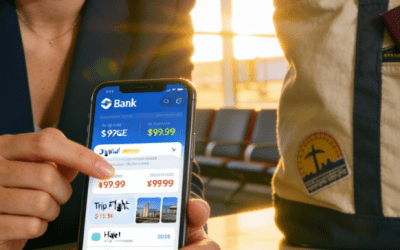In the dynamic world of tourism, being able to identify visitors’ needs and provide a solution is key to enhancing their overall experience at destination. A critical aspect of meeting these needs is through effective management and classification of tourist events. The challenge, however, lies in the multiple and varied sources through which these events are listed online, making direct event classification a difficult and time-intensive task. In order to address this challenge, a groundbreaking process was developed that uses hierarchical taxonomy for the automatic classification of tourist events, promising to transform tourist destination management.
The Catalyst for Change
Events not only enrich the destination’s attractiveness but also provide unique experiences that can boost tourist traffic, encourage spending, and shape the destination’s identity. This variety of events, ranging from music festivals and sports competitions to cultural festivals and conferences, requires a systematic approach to classification that facilitates the travel decision process for tourists.
From the perspective of tourism destination management, recognizing and adapting to visitors’ needs is crucial. Events are a vital component of the services offered by a destination, serving as a significant driver of tourism. Despite this, the tourism sector has struggled with the widespread adoption of a standardized event taxonomy, making it difficult for tourists to navigate and select events of interest efficiently.
Bridging the Gap with Data Science
The novel approach leverages the CRISP-DM process, supervised machine learning, and natural language processing techniques to automatically classify an eclectic variety of tourist events. This method enables the creation of a normalized catalog of events across diverse geographical regions, offering a consistent classification system irrespective of the original categorization used by event listing sources.
This standardized catalog is invaluable for companies like airlines, travel agencies, and hotel chains, offering a unified event discovery experience to users across multiple regions. The automatic classification process not only simplifies event discovery for tourists but also empowers companies to provide tailored information, enhancing the overall customer experience.
An innovative approach using the European standard process model CRISP-DM, alongside BERT (Bidirectional Encoder Representations from Transformers) for natural language processing and logistic regression was applied for classification. The study involved collecting data from over 1,100 event listing sources across more than 30 countries, encompassing 700,000 events listed in 23 languages. This extensive dataset allowed for the training of a model capable of classifying events into a hierarchical taxonomy, addressing the need for a standardized event classification system in the tourism industry.
The automated classification process presents a significant advancement in how companies and end users interact with tourist event information. By providing a live catalog of events with a normalized taxonomy, travelers can easily find events that align with their interests, regardless of the original classification. This is particularly beneficial during the inspirational phase of trip planning, allowing users to explore events seamlessly across different sources and languages.

Event Classifcation implications and innovations
The successful implementation of this automated classification system opens the door to numerous possibilities for enhancing tourism management and marketing. Future work could explore other variants of BERT, the inclusion of events in multiple categories to address overlap issues, and the development of more distinct taxonomic categories.
This research not only addresses a significant gap in the tourism industry but also sets the stage for further innovations that could predict venue occupancy, hotel bookings, and transport usage, among other applications. As the tourism sector continues to evolve, the adoption of such data-driven approaches will undoubtedly play a pivotal role in shaping its future, offering more personalized and accessible experiences for tourists worldwide while achieving a deeper understanding of tourist behavior and preferences.
The automatic classification of tourist events facilitates a more granular analysis of event popularity and tourist interests across different regions. This data can inform destination management organizations (DMOs), event planners, and tourism marketers about trends and preferences, enabling them to make informed decisions about event creation, promotion, and sponsorship. For instance, if data reveals a growing interest in sustainable tourism experiences, destinations can prioritize eco-friendly events, highlighting this emerging market segment.
The creation of a normalized event catalog also encourages collaboration among various stakeholders in the tourism ecosystem. Airlines, hotels, travel agencies, and event organizers can share data and insights, working together to create comprehensive travel packages that include event tickets, accommodation, and transport services. Such collaboration can strengthen the overall tourist experience, making travel planning more convenient and enriching for visitors.
Driving Innovation in Tourism Services
The technique used at Smartvel from the automated classification of events can spur innovation in tourism services. For example, artificial intelligence powered recommendation systems can be developed to suggest personalized event itineraries based on a traveler’s past behavior, preferences, and social media activity. These systems can dynamically adjust recommendations in real-time, based on weather conditions, event cancellations, or other factors, ensuring that tourists have the best possible experience during their visit.
By leveraging data science and AI, destinations can offer more personalized and engaging experiences to tourists, driving satisfaction and loyalty. As the industry continues to navigate the complexities of modern tourism, embracing such technological advancements will be key to staying competitive and meeting the ever-evolving needs of travelers. The journey towards a more connected and data-driven tourism sector is just beginning, and the possibilities are as vast as the destinations waiting to be explored.






